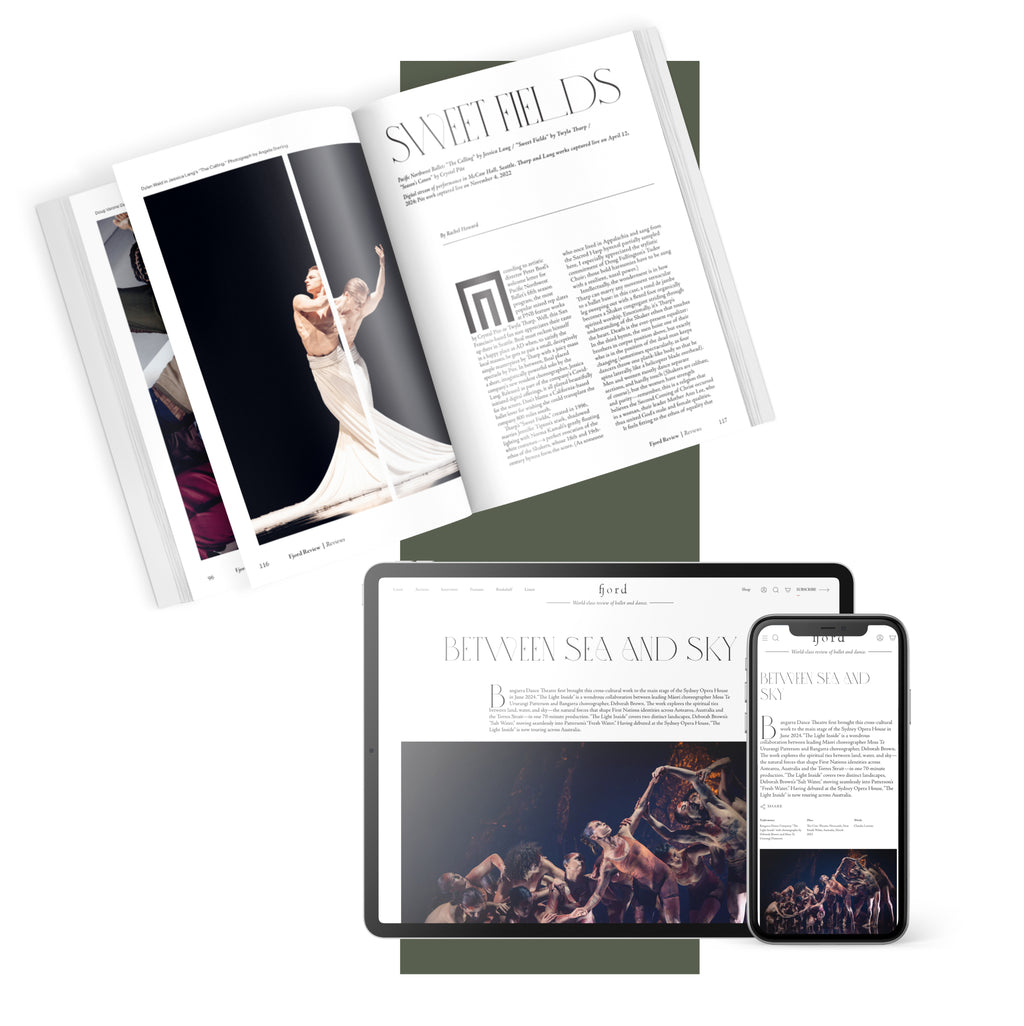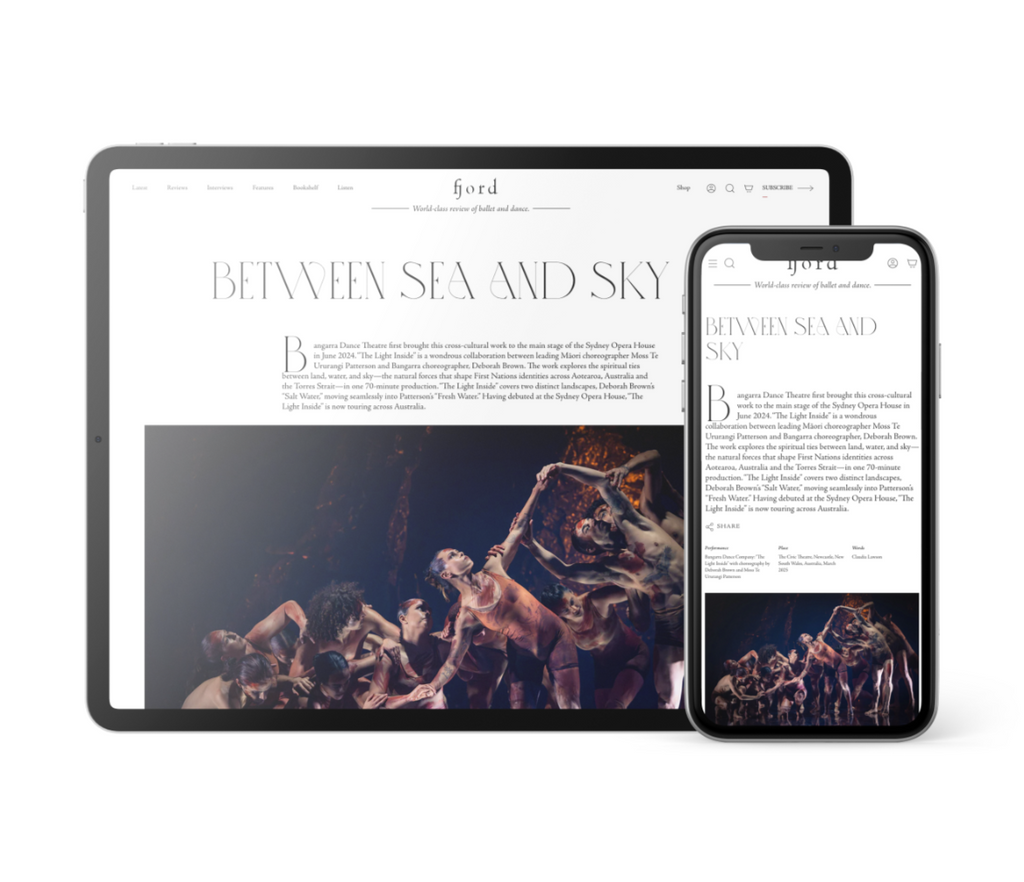Natural Histories
Miriam Miller steps into the center and raises her arm with deliberation, pressing her palm upward to the vaulted Gothic ceiling of the cathedral.
Continue Reading
World-class review of ballet and dance.
The annual Tanz im August, a contemporary dance festival in Berlin, draws in hundreds of spectators and dance companies from around the world. This year, two companies with West African roots proved particularly popular: Nadia Beugré’s Libr’Arts and Serge Aimé Coulibaly’s Faso Dance Theatre. Both Beugré, hailing from Côte d'Ivoire, and Coulibaly, from Burkina Faso, are choreographers who direct successful troupes in Europe and tour extensively everywhere from New York to Berlin. However, perhaps more importantly, both use their craft to confront the immediacy of bodily representation and the various strains of humor, discomfort, and joy that this confrontation arises.
Performance
Place
Words



“Uncommonly intelligent, substantial coverage.”
Your weekly source for world-class dance reviews, interviews, articles, and more.
Already a paid subscriber? Login

Miriam Miller steps into the center and raises her arm with deliberation, pressing her palm upward to the vaulted Gothic ceiling of the cathedral.
Continue ReadingIn a series called “Just Dance” on Nowness—a site I sometimes visit to see what’s up in the world of “genre busting” dance films that make it onto this stylized platform—I sometimes find little gems that quietly rock my world.
Continue ReadingBack in October, New York City Ballet got a new cowboy. His arrival occurred in the final section of George Balanchine’s “Western Symphony.”
Continue ReadingWhen Richard Move enters from stage left, his presence is already monumental. In a long-sleeved gown, a wig swept in a dramatic topknot, and his eyes lined in striking swoops, the artist presents himself in the likeness of Martha Graham—though standing at 6’4, he has more than a foot on the late modern dance pioneer.
Continue Reading
comments